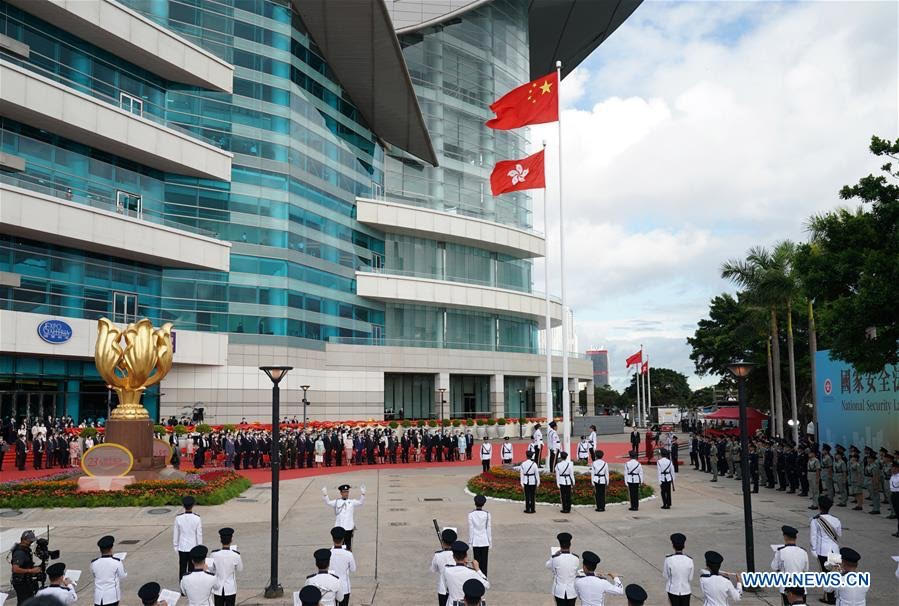News From China
Newly passed national security law a seawall safeguarding long-term prosperity, stability of Hong Kong

News From China
“China marks Lunar new year in Nairobi”

More than 200 guests, including ambassadors, UN officials, individuals, members of the media, and others who have contributed to China-Africa cooperation, enjoyed lively performances that set the tone for the upcoming Lunar New Year.
An event titled “Prelude to Lunar New Year Gala” washeld in Nairobi on Wednesday.
The “Prelude to Lunar New Year Gala” gave guests a chance to enjoy Chinese songs and dances, a performance of the traditional Gu Zheng instrument, and Chinese cuisine, all in the Spring Festival spirit of joyous celebration.
Shen Haixiong, President and Editor-in-Chief of China Media Group kicked off the event with a keynote address.
Chinese cultural musical performances followed, the Director General of the United Nations Office at Nairobi, Zainab Hawa Bangura, and Chinese Ambassador to Kenya, Zhou Pingjian, were among the many dignitaries in attendance.
-

 Featured6 years ago
Featured6 years agoLampard Names New Chelsea Manager
-

 Featured6 years ago
Featured6 years agoFG To Extends Lockdown In FCT, Lagos Ogun states For 7days
-

 Featured6 years ago
Featured6 years agoChildren Custody: Court Adjourns Mike Ezuruonye, Wife’s Case To April 7
-

 Featured6 years ago
Featured6 years agoNYSC Dismisses Report Of DG’s Plan To Islamize Benue Orientation Camp
-

 Featured4 years ago
Featured4 years agoTransfer Saga: How Mikel Obi Refused to compensate me After I Linked Him Worth $4m Deal In Kuwait SC – Okafor
-
Sports3 years ago
TINUBU LAMBAST DELE MOMODU
-

 News11 months ago
News11 months agoZulu to Super Eagles B team, President Tinubu is happy with you
-
Featured6 years ago
Board urges FG to establish one-stop rehabilitation centres in 6 geopolitical zones
